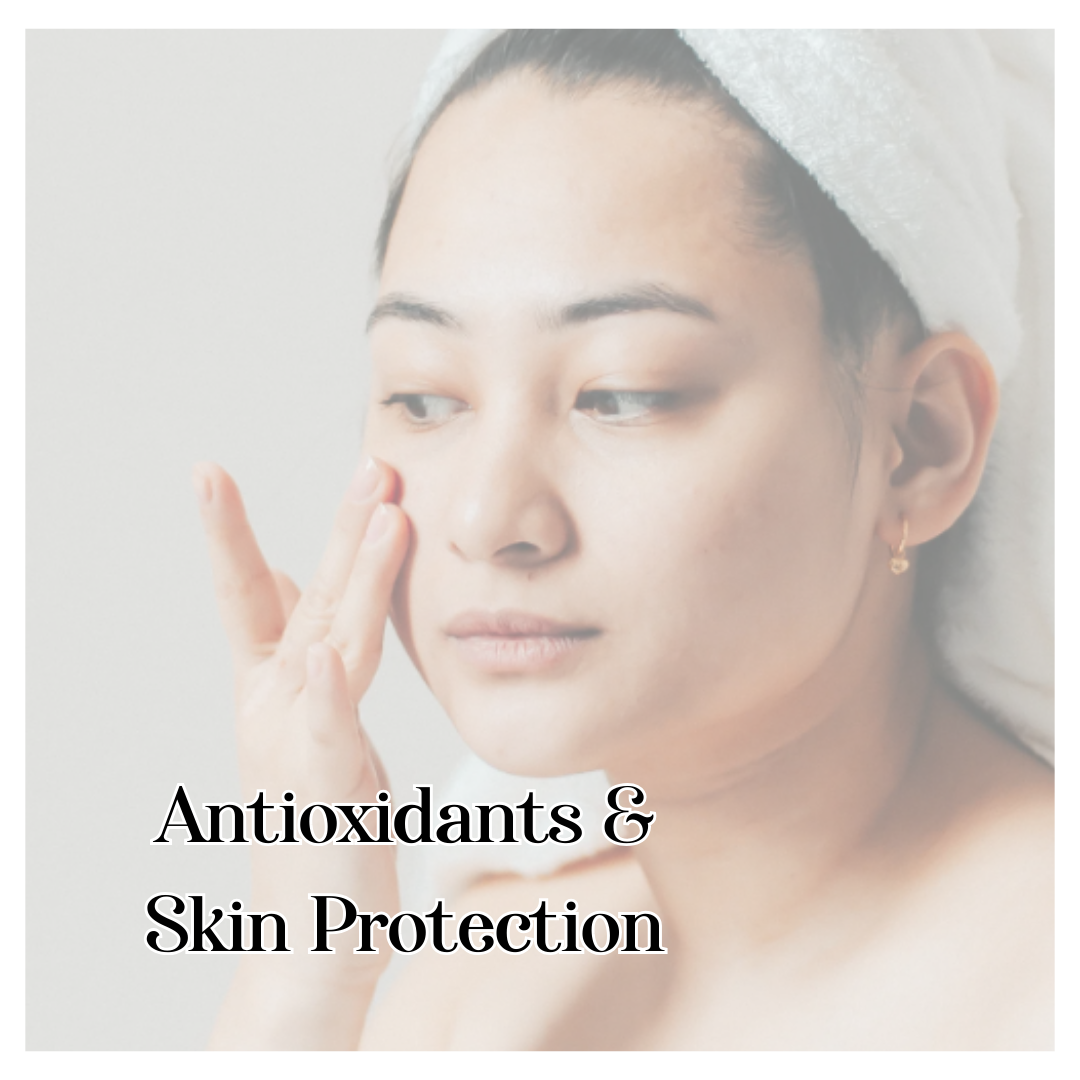The Power of Antioxidants in Skin Health
Sensitive skin requires extra care to stay healthy, protected, and resilient against external stressors. One of the best ways to strengthen the skin barrier and combat premature aging is through antioxidants—powerful compounds that neutralize free radicals, reducing oxidative damage caused by pollution, UV rays, and environmental aggressors.
Antioxidants don’t just improve skin’s appearance; they play a vital role in overall health by supporting the body’s natural repair processes. Their ability to prevent inflammation makes them essential for individuals with sensitive skin, as they help soothe irritation while reinforcing the skin’s defense system. However, not all antioxidants work the same way, and some are better suited for sensitive skin than others.
Understanding how these ingredients function and the best ways to incorporate them into a skincare routine is key to optimizing their protective benefits.
Vitamin C vs. Vitamin E: Which Antioxidant Wins for Sensitive Skin?
Vitamin C is widely recognized for its ability to brighten the skin, promote collagen production, and protect against UV-induced damage.
As a potent antioxidant, it helps reduce hyperpigmentation and improves skin texture over time. However, one challenge with Vitamin C is its instability—it oxidizes quickly when exposed to air and light, reducing its effectiveness. To prevent this, formulations often include stabilizing ingredients like ferulic acid or are designed in airtight, opaque packaging. Despite its impressive benefits, Vitamin C is not always ideal for sensitive or easily irritated skin. Its acidic nature can cause stinging, redness, and dryness, particularly for those with compromised skin barriers.
Those prone to sensitivity may experience discomfort or flaking, especially when using high concentrations.
Vitamin E, on the other hand, is a hydration powerhouse that excels in repairing and strengthening the skin barrier.
Unlike Vitamin C, it is naturally soothing and works as a skin-conditioning agent, making it an excellent choice for sensitive skin types. It acts as an emollient, helping to retain moisture and prevent transepidermal water loss, which is crucial for individuals with dry and reactive skin. The best formulations for Vitamin E often include nourishing oils or ceramide-rich creams that enhance its antioxidant benefits. Its ability to work synergistically with other antioxidants, makes it a valuable addition to any regimen focused on skin protection and hydration.
Because of its gentle nature, Vitamin E can be seamlessly integrated into a minimalist skincare routine without causing irritation.
Pollution & Skin: How Antioxidants Fight Environmental Stressors
Daily exposure to UV rays, air pollution, and blue light from screens can wreak havoc on the skin, accelerating sensitivity and premature aging. These environmental stressors generate free radicals—unstable molecules that cause oxidative stress, leading to collagen breakdown, loss of elasticity, and increased irritation.
Sensitive skin is particularly vulnerable to these effects, making antioxidants a crucial line of defense.
- Ingredients like Vitamin E, play a significant role in combating oxidative stress by neutralizing free radicals before they cause cellular damage.
- Resveratrol, often found in grape extracts, has powerful anti-inflammatory and protective qualities, making it ideal for reinforcing the skin’s natural barrier.
- Niacinamide, a versatile antioxidant, helps reduce redness while strengthening the skin’s ability to retain moisture.
Incorporating these antioxidants into a daily skincare routine through serums and moisturizers can significantly reduce environmental damage and keep the skin resilient. Additionally, lifestyle choices such as avoiding excessive sun exposure, staying hydrated, and maintaining a nutrient-rich diet contribute to skin health and longevity.
Antioxidants & Sunscreen: The Ultimate Duo for Skin Protection
One of the most effective ways to protect sensitive skin is by combining antioxidants with sunscreen. While sunscreen shields against harmful UV rays, antioxidants enhance its effectiveness by repairing oxidative damage and reinforcing the skin’s defense mechanisms.
- Vitamin E and SPF are an ideal pairing because Vitamin E works to restore moisture levels while sunscreen prevents further harm from UV exposure. This combination is particularly beneficial for dry or reactive skin that requires extra nourishment.
- Niacinamide and SPF are another powerful duo, as niacinamide helps repair previous sun damage, minimizes pigmentation, and prevents irritation.
Layering antioxidants with sunscreen creates a fortified shield against environmental aggressors, reducing the risk of premature aging and inflammation. For optimal results, applying an antioxidant-rich serum in the morning, followed by a moisturizer and broad-spectrum SPF, ensures comprehensive protection throughout the day.
How to Layer Antioxidants Without Irritation
Choosing antioxidant-rich formulas tailored to sensitive skin is crucial for maintaining a healthy and balanced complexion. The right order for application plays an important role in maximizing benefits without causing irritation.
A well-structured routine should begin with a gentle cleanser to remove impurities, followed by a lightweight antioxidant serum, then a moisturizer to lock in hydration, and finally SPF for full protection. Avoiding ingredient overload is essential, as combining certain actives can lead to sensitivity.
For example, using Vitamin C alongside retinol can cause excessive dryness and irritation, especially for delicate skin types. Instead, opting for a balanced approach by pairing calming antioxidants like Vitamin E and niacinamide ensures a soothing and effective regimen.
While topical antioxidants are essential in skincare, internal nourishment plays an equally important role in maintaining a radiant and healthy complexion.
A diet rich in antioxidant-packed foods such as berries, nuts, and leafy greens supports skin health from within, reinforcing the body’s ability to combat oxidative stress naturally. These foods provide vitamins and phytonutrients that enhance the skin’s ability to repair and regenerate.
Antioxidant supplements can also be beneficial when used appropriately, complementing a well-balanced diet to ensure optimal skin resilience.
Keeping the skin protected isn’t just about what’s applied on the surface—it’s about holistic care from the inside out.
And just like a superhero needs a sidekick, your skin needs antioxidants as its ultimate defenders against the forces of exosome.
You can take a screenshot of this infographic so you have what you learned here at hand!


